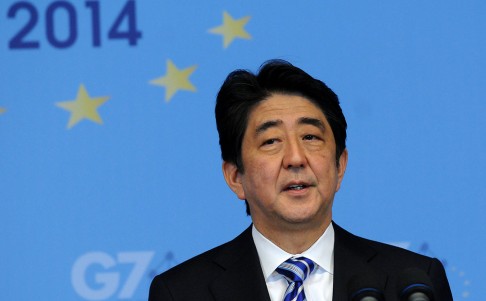
India PM Modi to visit Japan ‘likely in July’
Leaders of India and Japan to meet in Tokyo in July with regional security, territorial integrity and China likely to be high on the agenda
India’s Prime Minister Narendra Modi will “likely” visit Japan in July, the foreign ministry said on Friday, after Japanese media suggested the trip could happen as early as this month.
The Indian foreign ministry said Modi would head to Japan next month and the United States “most likely” in September after he makes his maiden trip abroad as premier to India’s northeastern neighbour Bhutan later in June.
“The prime minister has received an invitation to visit Japan at an early date ... the month is likely to be July,” ministry spokesman Syed Akbaruddin told a news briefing.
But “the [South Asian] neighbourhood remains India’s priority”, the spokesman added.
Modi invited leaders of Bhutan and other South Asian countries when he took office in May after his Hindu nationalist Bharatiya Janata Party won a majority on pledges to re-invigorate India’s sluggish economy.
Still, Tokyo’s high position on Modi’s foreign travel itinerary would mark a diplomatic coup for Japan whose Prime Minister Shinzo Abe is looking to boost his country’s global influence and shore up regional alliances to counter an increasingly assertive China, analysts say.
“Prime Minister Abe has invited new Prime Minister Modi to visit Japan, and the two countries are making final adjustments for that,” Japanese government spokesman Yoshihide Suga told reporters on Friday in Tokyo.
Abe and Modi exchanged friendly greetings on Twitter after the Indian leader’s win.

The Indian foreign ministry’s comments came after Japan’s Jiji Press reported Modi’s first foreign visit would be to Tokyo in June, with the increasingly precarious Asian security situation high on the agenda, along with a potential deal on nuclear power technology.
India, with its decrepit roads and underdeveloped infrastructure, also is a natural market for Japanese firms and has received much development aid.
But analysts say India and Japan have more in common than economic interests.
Both have long-running territorial disputes with China, whose growing military confidence is causing disquiet in Asia and beyond.
Japan is in a row with China over ownership of several islands in the East China Sea while New Delhi is at odds with Beijing over a long-running border dispute that flared into a brief war in 1961.
The Himalayan nation of Bhutan, considered as India’s “all-weather friend”, has also traditionally had frosty relations with China due to a long-running border dispute.
The United States, Japan’s key ally, is also concerned about China’s increasing economic and military clout and would welcome a closer relationship between New Delhi and Tokyo, which geographically bookend Beijing.
But Washington’s ties with Modi have been complicated by a US ban on him travelling to the country after deadly 2002 anti-Muslim riots swept the western state of Gujarat where he was chief minister for more than a dozen years.
Modi, however, visited Japan twice, once in 2007 when Abe was previously prime minister and another time in 2012 when he was in opposition.
Modi, accused by rights activists of turning a blind eye to the bloodshed, has never been found guilty of any wrongdoing by an Indian tribunal in connection with the riots.
Analysts have suggested the previous anti-Modi mood in Washington might hamper future friendship between the two countries.
But the Indian foreign ministry said Modi would meet President Barack Obama in Washington “likely” in September.
